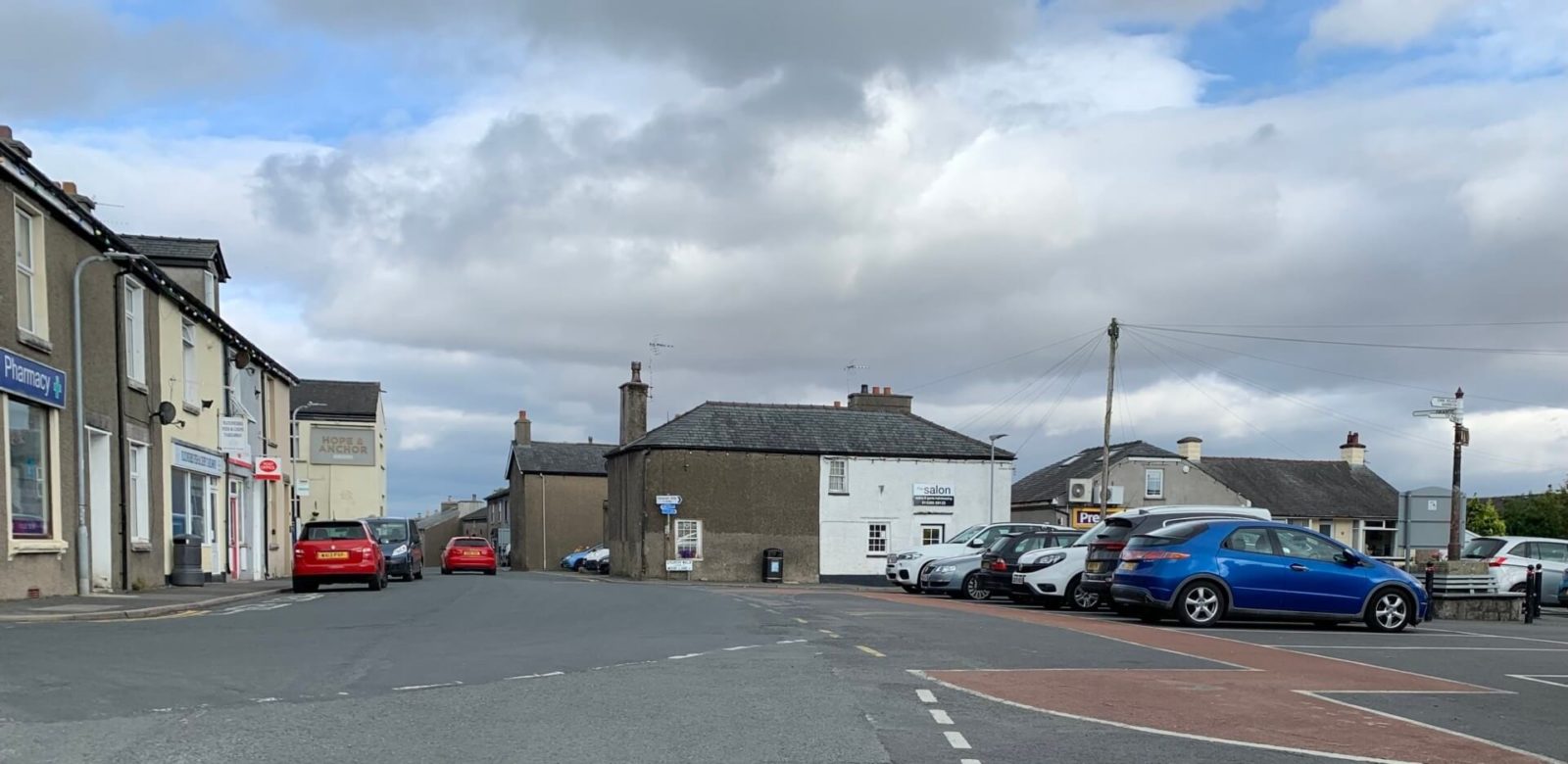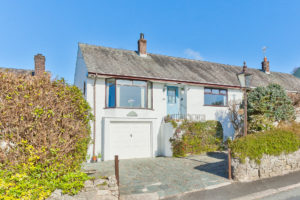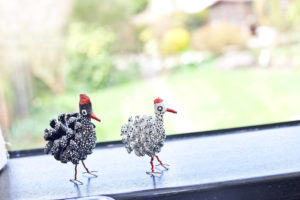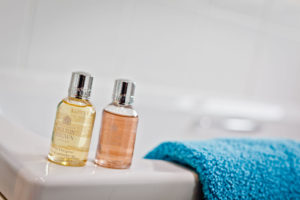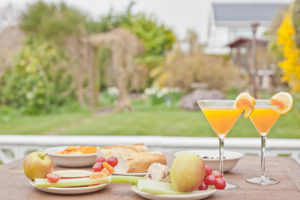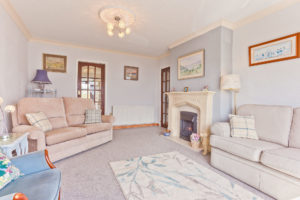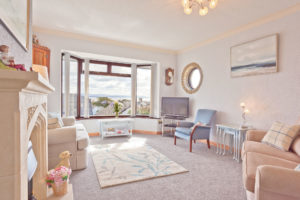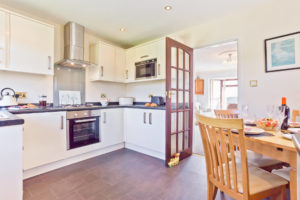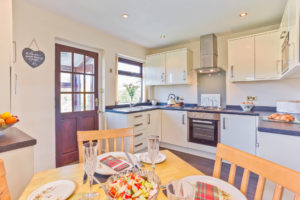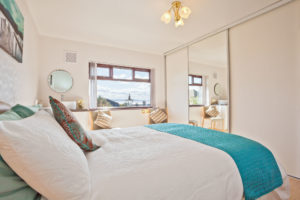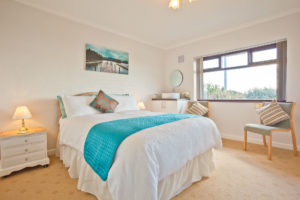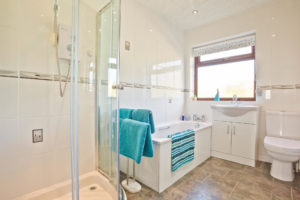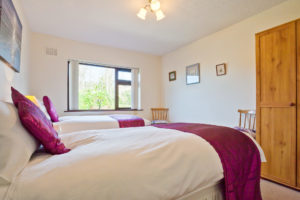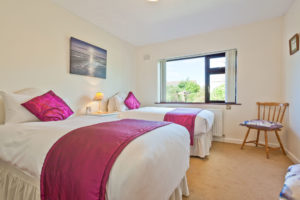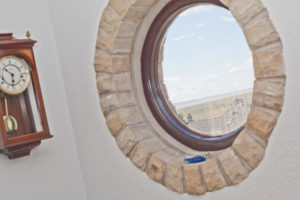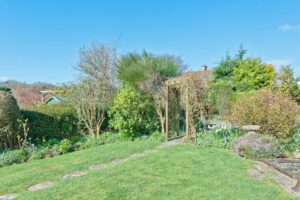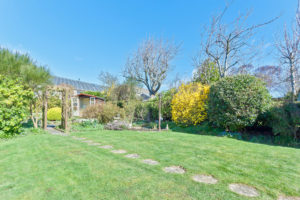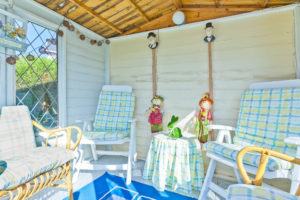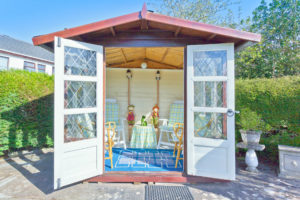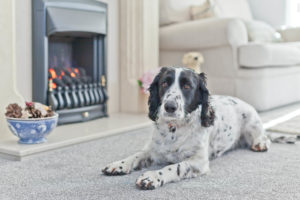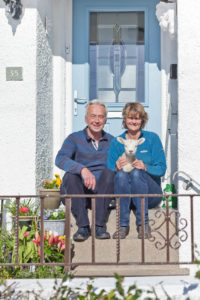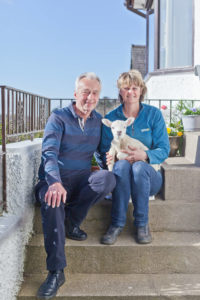Flookburgh – A Lakeland Haven
Flookburgh is a pleasant small fishing village close to Grange-over-Sands, situated on the northern edge of Morecambe Bay.
It is possible to see more tractors than cars as the local fishermen use them to carry their heavy nets out into the bay.
At one time, the land, a mile south of the village, (where the Haven Lakeland Holiday Park is now), would have been all sand. At exceptionally high tides, the sea would wash down over the streets.
Flookburgh was once an important market town due to it being on the cross-bay route between Lancaster and the Furness peninsula.
The village was granted a charter by Edward I, later confirmed by Henry IV and again by Charles II in 1665.
Flookburgh was then able to hold a market and two annual fairs.
Opposite the Hope and Anchor Inn, is what appears to be a large market square. It is in fact the site of an old chapel and graveyard. A chapel stood on this site from the 13th century and served by the canons of Cartmel.
The market cross stands in a smaller square just off Main Street.
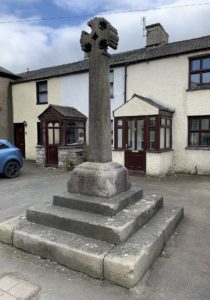
On the same side, further down (opposite the old Crown Inn), is the Manor House built in 1686.
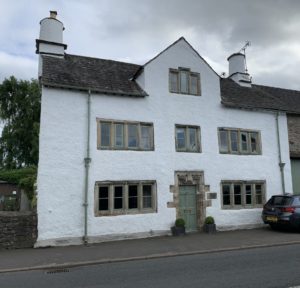
St John the Baptist’s Church, built in 1900, is on Station Road a few hundred yards from Flookburgh Square. The unusual church weather vane is in keeping with the local fishing tradition with a representation of a Morecambe Bay fluke.
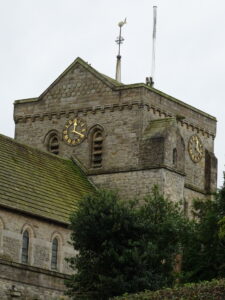
Flookburgh is a village of hardy fisherfolk who go out onto the bay at low tide.
Up until the First World war, fleet ships were able to come up to the shore at Sandgate to fish the mussel beds off the coast of Ulverston. This came to an end with the building of the railway.
Tractors replaced fishing boats on the north side of Morecambe Bay with small boats used on the southern side.
Flukes are a type of flat fish similar to plaice and are caught in the autumn and cockles in the winter.
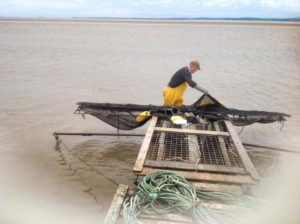
Planks of wood with handles- known as ‘Jumbos’, are used to bring cockles to the surface.
Cockles by the ton were once transported is sacks from the railway station at Cark.
Later, shrimping became more popular.
Shrimps are caught by a trawl net with a beam that scoops the shrimps into a net
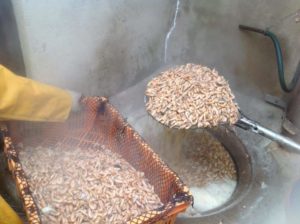
They are then cooked in a hemispherical iron cauldron heated by a central-heating burner.
Youngs Seafoods came to Cark-in-Cartmel, close to Flookburgh, in 1950 and developed the business of potted and frozen shrimps.
Every year in July, one of the biggest gatherings of steam engines and vintage tractors and trucks takes place at the Cumbria Steam Gathering on the old Cark airfield.
On the outskirts of Flookburgh is a crescent of houses known as Ravenstown. The original houses were built for staff at the nearby naval aerodrome towards the end of the First World War.
Ravenstown was originally known as Flookburgh West.
All the streets in Ravenstown are named after First World War battles. The original plan for the houses was abandoned, and the houses were bought by Messrs Vickers (now BAE) for employees at their shipyard. Today the houses are privately owned.
If you are looking for holiday cottages near Flookburgh, look no further, enquire here.
